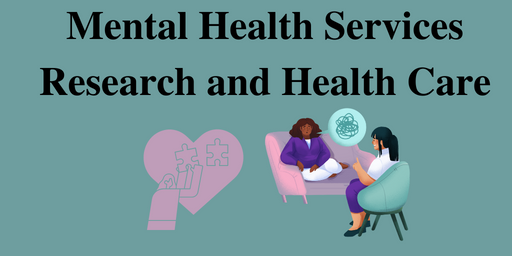Health Care and Mental Health Services


Mental Health Services Research
The importance of MHSR to inform improvements to public health services has become increasingly recognized in recent years, especially as mental disorders recently have been shown to be a leading cause of disability in the US and worldwide (Office of the Surgeon General, 1999; World Health organization, 2001).
MHSR generates new knowledge directed to the transformation of mental health services to achieve high quality, accessible, recovery-oriented care for all (President's New Freedom Commission on Mental Health, 2003).
In MHSR, the methods of general health services research are applied to examining a diverse range of topics such as: sociocultural aspects of mental health care delivery; access to and acceptance of mental health services; effectiveness of mental health care delivered in "usual care" settings; economics and financing of mental health services; and, quality of mental health care processes in relation to treatment guidelines and outcomes (NIMH).
Interaction With Other Health Care Departments
MHSR is interdisciplinary and integrative of the expertise of researchers in diverse fields, including psychiatric-mental health nursing, psychology, psychiatry, social work, anthropology, sociology, economics, biostatistics, health administration, and public policy.
Broad interdisciplinary research expertise is needed for the diverse range of health services research topics that require the integration of literature from multiple fields, construction of complex research designs and data collection protocols, and the use of sophisticated approaches to data analysis.
Research funding for MHSR is supported by multiple sources, including local, state, and federal. At the federal level MHSR is especially supported by the NIMH Division of Services and Intervention Research (DSIR). Most academically based federally funded research centers for mental health services research are led by non-nurse researchers.
An exception is the Southeastern Rural Mental Health Research Center (SRMHRC) at the University of Virginia School of Nursing, which began in 1992 supported by NIMH funding and continues its focus on unmet mental health needs in rural settings.
Difference in Interventions and Services
Distinctions between interventions (treatment) and services research are somewhat vague (see NIMH's Bridging Science and Service report, 1998b).
However, during the past decade, nurse researchers have most often focused on mental health interventions (treatment efficacy and effectiveness) research as opposed to broader service systems research.
MHSR programs led by nurses remain uncommon, in parallel with the small number of nurses entering psychiatric nursing (Delaney, K., Chisholm, Clement, & Merwin, 1999) and the very limited numbers of nurses with doctoral and postdoctoral training in mental health services research.
Relatively few doctoral programs in nursing prepare students to conduct MHSR. In 2001, in recognition of the need to increase the numbers of mental health services researchers, the American Psychiatric Nurses Association (APNA) facilitated the initiation of a postdoctoral mental health mentorship program,
"Building the Capacity of Psychiatric Mental Health Nurse Researchers, cosponsored by the National Institute of Nursing Research and the National Institute of Mental Health (Cochrane, 2001).
This program included a Phase I technical workshop on knowledge and skills for preparing grant applications, and a follow-up phase in which a concept paper was prepared and a mentoring plan developed to prepare a full grant application for review by NINR or NIMH.
The
current supply of mental health services researchers remains low in relation to
present and projected future needs. There remains an urgent need to increase
the supply of doctorly trained nurses with funded MHSR research programs to
improve the key contribution of nursing to this growing field.
Publishing Outcomes in APNA
Results of MHSR appear in journals publishing mental health services research, such as the Archives of Psychiatric Nursing, Issues in Mental Health Nursing, the Journal of the American Psychiatric Nurses Association, the Journal of Psychosocial Nursing and Mental Health Services, Mental Health Services Research, and Psychiatric Services, as well as many other journals not specifically focused on mental health or health services research.
Pullen, Tuck, and Wallace (1999) concluded that quality outcomes and mental health delivery systems are among mental health nursing research priorities, based on a review of literature published in the mid 1990s in mental health nursing journals.
Merwin and Mauck (1995) concluded that few psychiatric nursing studies were published in major nursing journals and that there was a lack of programmatic research upon which to base rigorous evaluation of outcomes.
A review of the nursing literature done for this Encyclopedia of Nursing Research manuscript a decade later obtained results that remained consistent with the earlier conclusions of Merwin and Mauck.
Some representative examples of MHSR
appearing in nursing journals over the past 5 years include the work of
Baradell and Bordeaux (2001) on outcomes and satisfaction of patients of
psychiatric clinical nurse specialists, and Merwin, Hinton, Dembling, and Stern
(2003) on shortages of rural mental health professionals.




Give your opinion if have any.